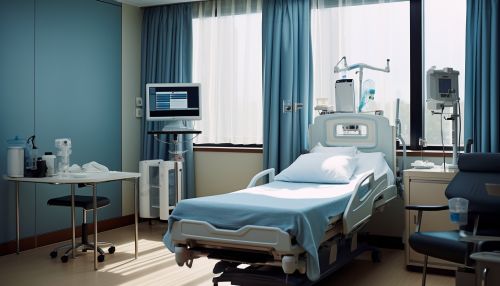Multiple Organ Dysfunction Syndrome
Introduction
Multiple Organ Dysfunction Syndrome (MODS) is a continuum, with incremental degrees of physiological derangements in individual organs. It is a process rather than a single event. Alteration in organ function can vary widely from a mild degree of organ dysfunction to completely irreversible organ failure. The degree of organ dysfunction has a major role in determining the outcome of the patient.
Pathophysiology
The pathophysiology of MODS is not well understood. However, it is believed that uncontrolled inflammation is a major factor. In response to injury or infection, the body's immune system triggers an inflammatory response. This response involves the release of chemical signals that promote inflammation and recruit immune cells to the site of injury or infection. In a normal response, this inflammation is self-limiting and resolves once the injury or infection has been dealt with. However, in MODS, this inflammatory response is dysregulated and becomes excessive. This leads to damage to the body's own tissues and organs, resulting in organ dysfunction and failure.


Clinical Presentation
Patients with MODS often present with symptoms related to the failing organ systems. These can include respiratory distress, altered mental status, decreased urine output, and abnormal liver function tests. The onset of MODS can be sudden or gradual, and the course of the disease can be rapid or protracted. The severity of MODS can range from mild organ dysfunction to multiple organ failure.
Diagnosis
The diagnosis of MODS is based on clinical assessment and laboratory tests. There is no single definitive test for MODS. Instead, the diagnosis is made based on the presence of altered function in two or more organ systems. This can be determined through a combination of physical examination, medical history, and laboratory tests.
Treatment
The treatment of MODS is primarily supportive. The goal is to support the failing organ systems and to treat the underlying cause of the organ dysfunction. This can involve a variety of treatments, including mechanical ventilation for respiratory failure, dialysis for kidney failure, and medication to support heart function. In some cases, surgery may be necessary to treat the underlying cause of the organ dysfunction.
Prognosis
The prognosis for patients with MODS is variable and depends on a number of factors, including the number and severity of organ systems involved, the underlying cause of the organ dysfunction, and the patient's overall health status. Despite advances in medical care, MODS remains a significant cause of morbidity and mortality in critically ill patients.
See Also
Septic Shock Acute Respiratory Distress Syndrome Acute Kidney Injury
